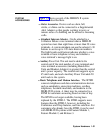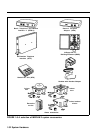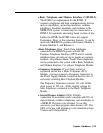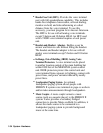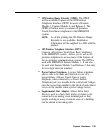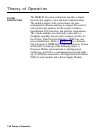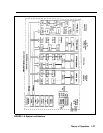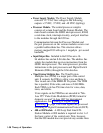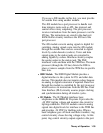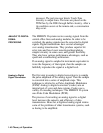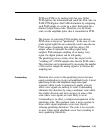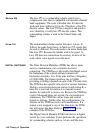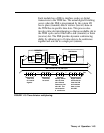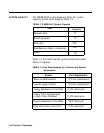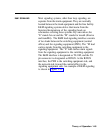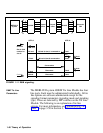
If you use a 008 module in this slot, you must provide
for outside lines using another module.
The 408 module has a port processor to handle real-
time intensive tasks such as ATL line protocol and
central office rotary outpulsing. The port processor
receives instructions from the main processor over the
I/O bus. The instructions are stored in the dual port
RAM. Buffer circuitry interfaces the I/O bus to the
port processor.
The 408 module converts analog signals to digitaI for
switching. Analog signals come into the 408 module
through the outside lines and are converted to digital
levels by coder-decodes (codecs). Voice and data
signals going to the station jacks are converted to
analog signals by codecs. Interface circuitry couples
the analog output to the station jack. The DSE
interfaces voice and data with the TDM bus. The main
processor (through the 1/0 bus) directs the DSE to
place or remove samples from the TDM bus in specific
time slots.
●
008D Module.
The 008D Digital Module provides a
digital interface to the system for PCs and other data
devices. This module does not require codecs because
no analog to digital conversion is required. Data flow
through the module is controlled by the port processor,
which receives its instructions from the I/O bus. Dual
Line Interface (DLI) circuitry assures proper clocking
and synchronization during all transfer cycles.
●
012 Module.
The 012 Module interfaces basic
telephones to the MERLIN II system. It provides the
-48 VDC tip/ring voltage and monitors the circuit for
tip/ring conditions. The 012 module converts analog
signals into digital levels for interface to the TDM bus
and provides -24 VDC for the Ring relay. When a
basic telephone goes off-hook and dials a number, ring
control circuitry closes the ring voltage relay. At this
point, ring control circuitry outputs signals to the port
Theory of Operation 1-39



